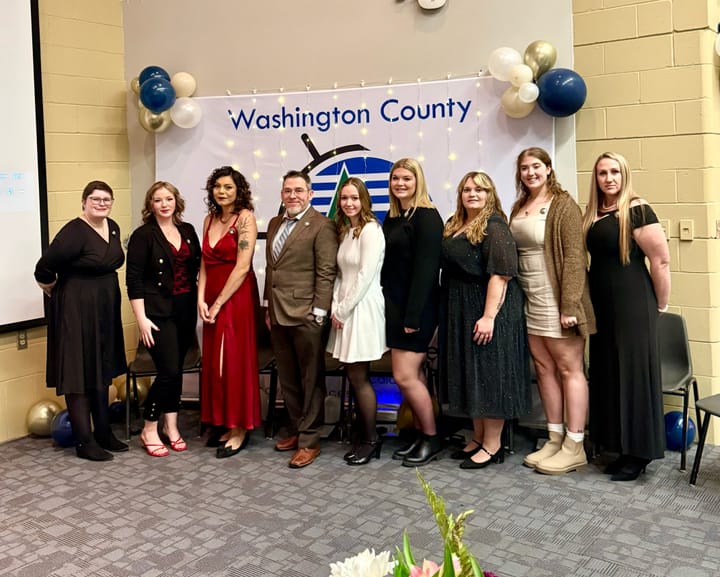Acadian’s talks aim to win goodwill of local communities
Representatives of Acadian Seaplants Ltd. of Pennfield gave a presentation to Pembroke selectmen at their meeting of July 20 to update them on the company's 2009 rockweed harvesting operations in Cobscook Bay.
Representatives of Acadian Seaplants Ltd. of Pennfield gave a presentation to Pembroke selectmen at their meeting of July 20 to update them on the company's 2009 rockweed harvesting operations in Cobscook Bay. The three speakers -- Dennis Bryant, director of rockweed operations in Maine; Rex Hunter, vice president for resource; and Dr. Raul Ugarte, scientist -- said they have been giving a series of similar talks to local officials in towns around the bay to explain the company's harvest plan and attempt to win the goodwill of upland owners after several years of contention.
The 2009 harvest season is the first since the passage of legislation in June that significantly expands the regulation of rockweed harvesting in Cobscook Bay. Hunter said the season has gotten off to a slow start as the company developed procedures to meet the new requirements, but he says Acadian "supports the new law 100%."
The bay has been split into two sectors this season, with Acadian harvesting from one, and Butch Harris and a partner, Bob Morse, managing the other. To date, about 250 tons have been taken from the bay, well under last year's rate. Hunter says that Acadian strictly observes the "no cut" registry of upland owners that is maintained by the Quoddy Regional Land Trust, and he displayed the maps that harvesters use to designate excluded areas of state, federal and private conservation lands.
Bryant, a Charlotte resident, said the company is now leasing the former Johnson's Plumbing building on Route 1 and hopes to purchase the property in the fall. Acadian employs seven local harvesters at present, who earn between $500 and $1,000 per week, he said. He stressed the company's commitment to hire local people and "spend money locally." Harvesters are trained to be courteous, "keep trash off the boat landing," and "stay off anyone's land that doesn't want harvesting."
The wet product is presently transported by barge to the company's drying facility in New Brunswick, where it is solar-dried, typically on the paved runways of abandoned airports. Acadian owns a former airfield not far from Pennfield, where rockweed from Cobscook Bay is laid out. Hunter says the limited harvest expected this year would not justify acquiring drying fields in this area, but the potential exists if more tonnage is extracted in the future.
Hunter repeatedly underlined Acadian's goal to "win the confidence of local people." After the opposition that crested last summer and pitted landowners and conservationists against harvesters, Hunter said, "We want to build a mature, respectful relationship with this area. We respect the upland owners." Ideally, he added, the company hopes to change their attitudes to the point where they actually request harvesting on their land.
Ugarte projected digitized photos that he said demonstrated the growth, harvesting process and subsequent regrowth of the plant, whose scientific name is Ascophyllum nodosum. He also showed photos that had been taken last year by Robin Seeley, Ph.D., and that she presented to a legislative committee in testimony prior to passage of the regulations bill last month. Ugarte disputed Seeley's contention that the photos showed rake cuts in violation of the "16-inch rule," asserting the cuts were caused by the "nibbling" of periwinkles and urchins.
Bryant told selectmen he hopes for their support of the Acadian operation in January when the commissioner of marine resources will review the 2009 harvest season for a report to the legislative committee that crafted the bill. He also said he hopes the local officials will also keep him apprised of "any negatives" that may come to their attention.

